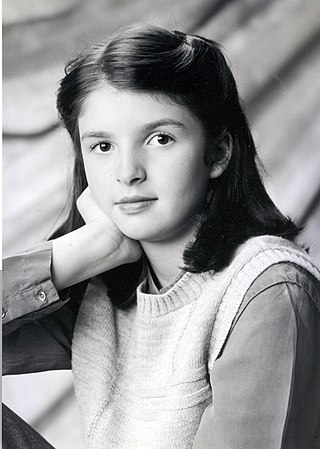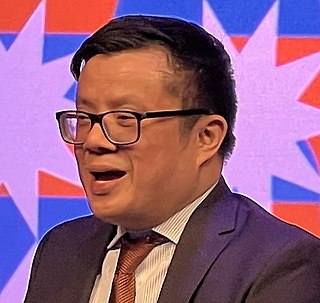Related Research Articles

Transcendental Meditation (TM) is a form of silent mantra meditation developed by Maharishi Mahesh Yogi. The TM technique involves the use of a silently-used sound called mantra, and is practiced for 15–20 minutes twice per day. It is taught by certified teachers through a standard course of instruction, which costs a fee that varies by country. According to the Transcendental Meditation movement, it is a non-religious method that promotes relaxed awareness, stress relief, self-development, and higher states of consciousness. The technique has been seen as both religious and non-religious.

The Committee for Skeptical Inquiry (CSI), formerly known as the Committee for the Scientific Investigation of Claims of the Paranormal (CSICOP), is a program within the U.S. non-profit organization Center for Inquiry (CFI), which seeks to "promote scientific inquiry, critical investigation, and the use of reason in examining controversial and extraordinary claims." Paul Kurtz proposed the establishment of CSICOP in 1976 as an independent non-profit organization, to counter what he regarded as an uncritical acceptance of, and support for, paranormal claims by both the media and society in general. Its philosophical position is one of scientific skepticism. CSI's fellows have included notable scientists, Nobel laureates, philosophers, psychologists, educators, and authors. It is headquartered in Amherst, New York.

Eleanor Rosalynn Carter is an American writer and activist who served as the first lady of the United States from 1977 to 1981 as the wife of President Jimmy Carter. For decades, Carter has been a leading advocate for numerous causes, including mental health.

The Carter Center is a nongovernmental, not-for-profit organization founded in 1982 by former U.S. President Jimmy Carter. He and his wife Rosalynn Carter partnered with Emory University just after his defeat in the 1980 United States presidential election. The center is located in a shared building adjacent to the Jimmy Carter Library and Museum on 37 acres (150,000 m2) of parkland, on the site of the razed neighborhood of Copenhill, two miles (3 km) from downtown Atlanta, Georgia. The library and museum are owned and operated by the United States National Archives and Records Administration, while the center is governed by a Board of Trustees, consisting of business leaders, educators, former government officials, and philanthropists.
Maharishi Vedic Approach to Health (MVAH) is a form of alternative medicine founded in the mid-1980s by Maharishi Mahesh Yogi, who developed the Transcendental Meditation technique (TM). Distinct from traditional ayurveda, it emphasizes the role of consciousness, and gives importance to positive emotions. Maharishi Ayur-Veda has been variously characterized as emerging from, and consistently reflecting, the Advaita Vedanta school of Hindu philosophy, representing the entirety of the ayurvedic tradition.

The American Medical Association (AMA) is a professional association and lobbying group of physicians and medical students. Founded in 1847, it is headquartered in Chicago, Illinois. Membership was 271,660 in 2022.

Deepak Chopra is an Indian-American author and alternative medicine advocate. A prominent figure in the New Age movement, his books and videos have made him one of the best-known and wealthiest figures in alternative medicine. His discussions of quantum healing have been characterised as technobabble – "incoherent babbling strewn with scientific terms" which drives those who actually understand physics "crazy" and as "redefining Wrong".

Stephen Joel Barrett is an American retired psychiatrist, author, co-founder of the National Council Against Health Fraud (NCAHF), and the webmaster of Quackwatch. He runs a number of websites dealing with quackery and health fraud. He focuses on consumer protection, medical ethics, and scientific skepticism.
Natalya "Natasha" Nikolayevna Demkina is a Russian woman who claims to possess a special vision that allows her to look inside human bodies and see organs and tissues, and thereby make medical diagnoses. Since the age of ten, she has performed readings in Russia. She is widely known by the childhood variant of her given name, Natasha.

Morris Fishbein was an American physician and editor of the Journal of the American Medical Association (JAMA) from 1924 to 1950.

Emily Rosa is the youngest person to have a research paper published in a peer reviewed medical journal. At age nine Rosa conceived and executed a scientific study of therapeutic touch which was published in the Journal of the American Medical Association in 1998. She graduated from the University of Colorado at Denver in 2009 with a major in psychology. Her parents, Larry Sarner and Linda Rosa, are leaders of the advocacy group Advocates for Children in Therapy.
Kendrick Crosby Frazier was an American science writer and longtime editor of Skeptical Inquirer magazine. He was also a former editor of Science News, author or editor of ten books, and a Fellow of the American Association for the Advancement of Science (AAAS). He was a fellow and a member of the executive council of Committee for Skeptical Inquiry (CSI), an international organization which promotes scientific inquiry.

The Boston University Chobanian & Avedisian School of Medicine (CAMED), formerly the Boston University School of Medicine, is one of the graduate schools of Boston University. Founded in 1848, the medical school was the first institution in the world to formally educate female physicians. Originally known as the New England Female Medical College, it was subsequently renamed Boston University School of Medicine in 1873, then Chobanian & Avedisian School of Medicine in 2022. In 1864, it became the first medical school in the United States to award an M.D. degree to an African-American woman.
Tom Davis is a journalist and academic on mental health issues.

Bill Lichtenstein is an American print and broadcast journalist and documentary producer, president of the media production company, Lichtenstein Creative Media, Incorporated.

Sewell Chan is an American journalist who is the editor-in-chief of The Texas Tribune. Prior to that he was the editorial page editor at the Los Angeles Times, where he oversaw the editorial board and the Op-Ed and Sunday Opinion pages of the newspaper. Chan also worked at The New York Times from 2004 to 2018 in a variety of reporting and editorial positions.
Nancy Lonsdorf is an American author and medical doctor who practices Maharishi Ayurveda. She received her training at Johns Hopkins School of Medicine and studied Ayurveda in Europe and India, and is the author of several books on the subject.
Wallace Sampson, also known as Wally, was an American medical doctor and consumer advocate against alternative medicine and other fraud schemes. He was an authority in numerous medical fields, including oncology, hematology, and pathology. He was Emeritus Professor of Clinical Medicine at Stanford University. He was the former Head of Medical Oncology at Santa Clara Valley Medical Center, and a member of the faculty at the Skeptic's Toolbox 1998–2008.

Lynne Lamberg is an American freelance medical journalist, writer and editor. In addition to books on sleep, dreams, and biological rhythms, she has written hundreds of articles on mental and physical health for medical professionals and the general public.
References
- 1 2 "Rosalynn Carter Fellowship" . Retrieved March 20, 2011.
- 1 2 "John P. McGovern Award". Archived from the original on October 21, 2013. Retrieved November 10, 2013.
- 1 2 "Balles Prize". CSICOP. June 14, 2013. Retrieved November 10, 2013.
- ↑ "(CSI Author)Andrew Skolnick" . Retrieved November 12, 2013.
- ↑ Skolnick, A. A. (1998). "Prison Deaths Spotlight How Boards Handle Impaired, Disciplined Physicians". JAMA. 280 (16): 1387–1390. doi:10.1001/jama.280.16.1387. PMID 9800985.
- ↑ Allen, W.; Bell, K. (September 27, 1998), "Death, neglect and the bottom line.", St. Louis Post-Dispatch, pp. G1-3
- ↑ Skolnick, A.; Bell, K. (September 27, 1998), "Prisoner, doctor who treated him, both had drug arrests.", St. Louis Post-Dispatch
- ↑ Skolnick, A. (September 27, 1998), "Two key posts in Alabama were filled by doctors with checkered histories.", St. Louis Post-Dispatch
- ↑ Skolnick, A. (September 27, 1998), "Physicians with troubled pasts have found work behind bars.", St. Louis Post-Dispatch
- ↑ "Goldsmith Prizes Awarded at KSG", The Harvard University Gazette, March 18, 1999
- ↑ Skolnick, Andrew (May 2005). "Natasha Demkina: The Girl with the Normal Eyes". Skeptical Inquirer . Retrieved May 22, 2012.
- ↑ "CSICOP's 1992 Awards". Skeptical Inquirer. 17 (3): 236. 1993.
- ↑ "Sample Web Work" . Retrieved November 16, 2013.
- ↑ Skolnick, Andrew A. (1991). "Maharishi Ayur-Veda: Guru's Marketing Scheme Promises the World Eternal 'Perfect Health'". JAMA. 266 (13): 1741–1750. doi:10.1001/jama.1991.03470130017003. PMID 1817475.
- ↑ The Lancaster Foundation, Inc., The American Association for Ayur-Vedic Medicine, Inc. vs. Andrew A. Skolnick, George D. Lundberg, M.D.; United States District Court for the Northern District of Illinois, Eastern Division, No. 82 C 4175; Judge Charles P. Kocoras
- ↑ Lancaster Foundation v Skolnick 21 Media Law Reporter, 1021 (ND Ill 1992)
- ↑ McLain, Deckle, "A New Kind of Gag Order; Fortunately the Appeals Courts Don't Like Them", Communications and the Law 18 Com &Law 43 (1996)
- ↑ Current Developments in Media Libel and Invasion of Privacy Law, Libel Defense Resource Center Vol 11 p 558 (1994)
- ↑ Communications Law, Vol 2 (1994), Practicing Law Institute p 497
- ↑ Hylton, Wil. "Sick on the Inside: Correctional HMOs and the coming prison plague". Harper's Magazine. Retrieved March 20, 2011.
- ↑ Miner, Michael (November 26, 1998). "AMA Fires a Loose Cannon; Psst—Wanna Buy a Wire Service?". Chicago Reader. Retrieved November 12, 2013.
- ↑ "Honors Abound for Mental Health Fellows" (PDF), The Carter Center News, p. 5, January–June 1999
- ↑ "SKOLNICK v. CORRECTIONAL MEDICAL SERVICES, INC" . Retrieved November 12, 2013.